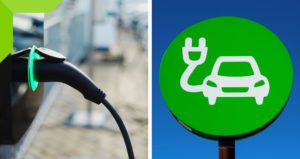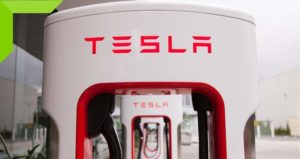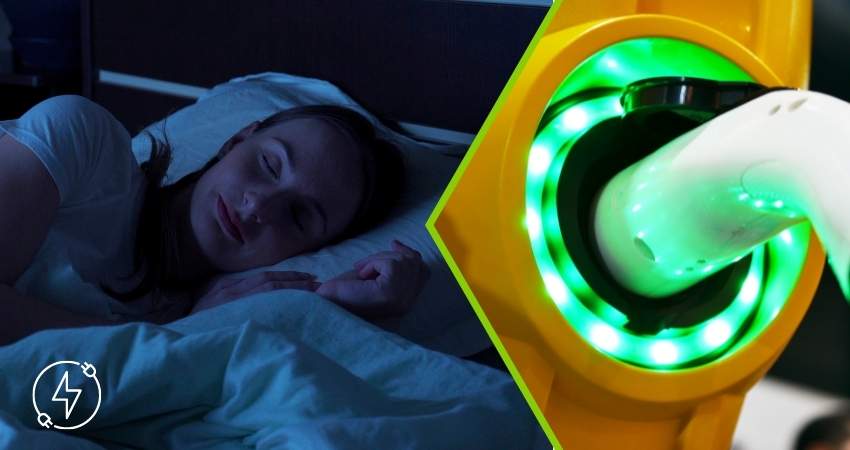Charging at home is great because it gives you ample time to charge your car at a lower electricity price. Most often, the fundamental question of charging arises. Can you charge an electric vehicle overnight?
Can You Leave Your Electric Car Plugged in Overnight?
It’s always safe to leave your electric car plugged in overnight. The battery management system in your car protects your battery from overcharging. Also, you can use charging during off-peak hours when electricity is cheaper.
How Electric Vehicle System Protects It From Overcharging
Here is a detailed answer, the system slows down the charging process when the battery is close to 100%. At 100% charging, it starts trickling, which means the battery will simultaneously charge periodically and discharge at the same rate. It needs recharging because even when the car is off, few functions are running, and they use battery power. Mainly this is why an EV reduces its battery when not used. To balance that, we recharge the battery – this is called charge balancing. It avoids overcharging, similar to smartphones and other devices with built-in management systems.
It is important to note that the amount of charge a car can hold is directly proportional to its life span. The number of charge cycles an EV may have while in use can also reduce battery health while affecting the car’s range.
5 Benefits of Charging Electric Car Overnight
1. Cheap nighttime electricity
Even though electric charging is cheaper than fuel, electricity is still not free. Charging costs can be very high according to your location and time. Charging overnight can save you up to 30% of the original price.

Nighttime electricity rates are usually cheaper, as there won’t be a tax grid due to charging during off-peak times. Charging overnight also reduces peak demand on the grid. That is why it is recommended for EV owners to charge overnight.
2. Full Battery Each Morning
Range anxiety is common among electric car owners or people wishing to buy an electric car. Anxiety that your vehicle will run out during an urgent business trip or day out is a genuine concern. The best solution is to keep the tank full!

Overnight charging can reduce your stress. If you wake up with your car charged to complete, you can go miles without getting worried about its battery running out of charge. A Nissan Leaf can go 150 miles on a full charge, whereas a Model 3 tesla can go 300 miles.
3. Unexpected Long Trips
Life is full of twists and unexpected turns, and an unforeseen trip is not uncommon. Overnight Charging your battery can keep you ready to face these unexpected long trips. A fully charged battery can ensure smoother and quicker acceleration, with few alternator switches going on and off due to low voltage and increased battery life.

Long trips need a longer charge to cover lengthier ranges – even half a tank can be a hindrance and cause stress. Plugging in your electric vehicle before sleeping can guarantee miles of travel in the morning and a stress-free journey.
4. Helps the Environment
Electric cars are undoubtedly environmentally friendly, but saving the environment doesn’t end with purchasing or driving an electric car. Car charging also has an impact – charging your vehicle at the right time can be beneficial for the environment.

Overnight charging can reduce peak power demand. Let’s make it simple: electricity demand is at its peak during the daytime. Still, low power is flowing at night, so charging can help the environment and reduce your electricity cost.
If Electric vehicle drivers plug in large fleeting Electric vehicles at night, it can reduce load and lessen the environmental pollution.
5. A Convenient Way to Charge
Overnight charging is very convenient in the life of a busy person. You get home, let your car cool down, plug it in overnight, and in the morning, you are ready to go!

It takes you off the worry of taking time and plugging in your car, plus you don’t have to stand in lines to charge your vehicle during the day. In this era of smart cars, this is serviceable and time-saving technology.
5 Ways to Maintain Battery Health
1. Regular Checks on the Health of the Battery
Having rust or any spillage on your battery is an alert for battery service. Calendar aging is not the only issue with the battery. There is a crucial degradation mechanism which is why it needs a check. Frequent checkups can help you highlight your batteries and stop you from having unwanted surprises.

Tip: Always cool down your car after a long ride before plugging it in for charging – just give it 30 min to one hour.
2. Limit Exposure to High Temperatures
Extreme temperatures are the worst enemy of your EV’s battery life and can lower their performance. In winter, you might notice an efficiency decline in range, charging time, and performance. In summers, due to severe heat, your EV overheats, the battery burns the material inside, and capacity lowers. The automated temperature control system will needlessly drain your batteries.

How to Avoid This?
First, keep your EV parked inside, away from those fluctuating temperatures.
Secondly, use a plugin, so the thermal control system only uses grid power and make sure to put a stable temperature range.
3. Avoid Fast Charging
In today’s fast-paced world, if you forget to charge and are running late, fast charging is a great solution.
But!
It puts too much current into batteries in a short time which might sound great, but it’s straining and deteriorates the battery health. It also creates too much unnecessary heat.

The degradation process might be slow, but eight years of normal-paced charging will give you 10% more battery life than a fast-paced charged battery. That’s a difference of 500 miles and 450 miles. It’s almost a week’s regular drive to a nearby office.
4. Charging Below 100% And Above 25%
Electric vehicles have a built-in battery management system, but keeping your charging between 25% to 100% is ideal. It might give you more operating time if fully charged to 100%, but it’s not good for battery health. Overcharging will heat the battery and eat away its life span.

Even though the EV battery can never directly hit 0%, it’s still safer to recharge as soon as 25%.
Smart chargers usually have a limit system, and if you limit your battery to 75%, it can preserve your battery for a longer time, and it’s the magic number for battery health. It may help the battery not to overfill and heat up.
5. Not Flooring the Pedal
You might have heard the phrase “floor it!” from your friends after you guys took a ride in your new car. Batteries are costly, and flooring the pedal might damage your car battery, and every time you “Floor it!” your battery capacity will decrease.
“Then why do EV car pedals go all the way down if we are not supposed to do that!?” sounds logical. Sadly, your car will suddenly overheat the batteries and permanently decline your battery life span.
Can I Leave My Tesla Charger Plugged in Overnight?
Yes! But Tesla has lithium-ion batteries, and the company recommends that you keep your car plugged in with a maximum charge level set at 50%, as this is the most stable state for lithium-ion batteries.

Knowing that Tesla has a dedicated charger, you pre-set your battery at a specific percentage (at most 60%). Charging overnight is safe, just set the miles and percentage of charging overnight. Only charge 100% if you are going on a long trip the next day. Else 90% is enough.
Can You Leave Prius Prime Plugged in Overnight?
Yes, the system will stop charging automatically when the battery is complete as it has built-in battery management and monitoring system.
Prius Prime’s battery can be charged in less than 5 hours and 30 minutes by plugging the included charging cable into a standard household outlet. You shouldn’t leave it plugged in, fully charged, for longer than 1-2 days.
Should You Charge Your Electric Car Every Night?
No! EVs have a built-in battery management system, which can cause battery degradation over time. EV goes through self-discharge when the battery is full. The amount of charge is minimal. Therefore, to have a full battery, the built-in system recharges periodically and discharges.
The more charging cycles a battery goes through, its life span reduces, and its capacity to hold charge decreases, consequently affecting the range.
How Long Can an Electric Car Sit Without Charging?
In a stable temperature environment, an electric car at 90% can go six months without charging (on power saving mode), but it varies for extreme environments. An EV can go 200 miles on a single charge.
Running an EV without charging depends on what power mode it’s on, its current charge level, and outdoor temperature. Lithium-ion batteries are good at preserving power, and you can leave them for months as long as their initial charge level is 80%.


